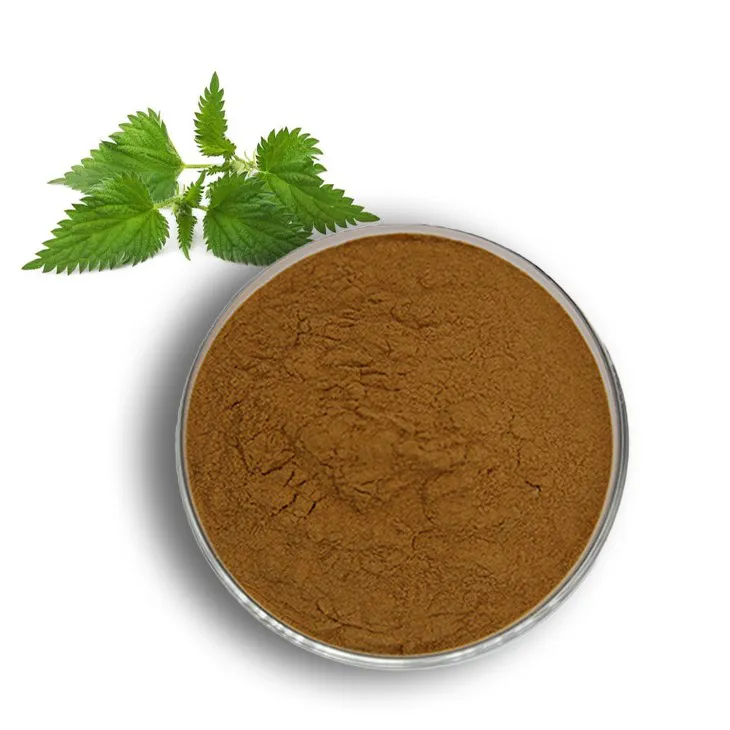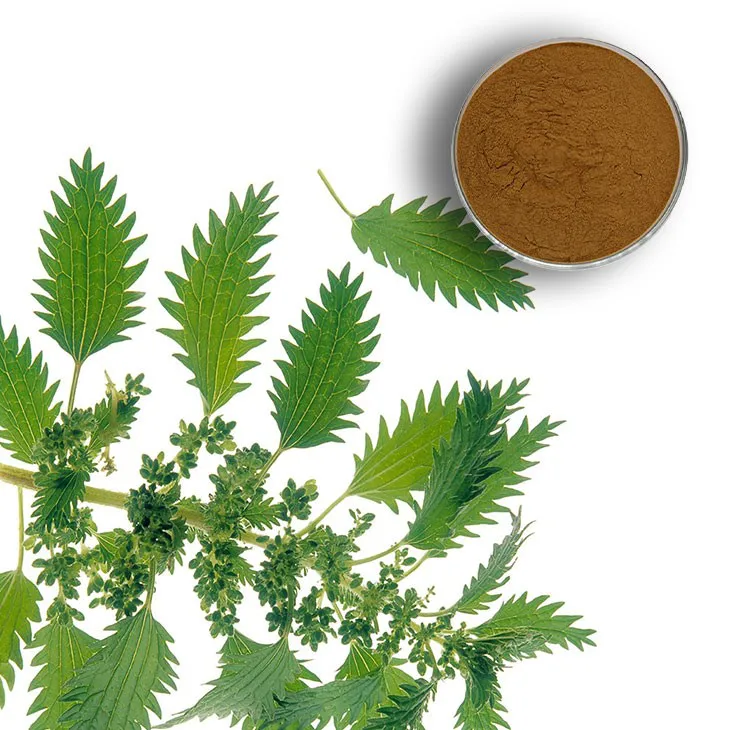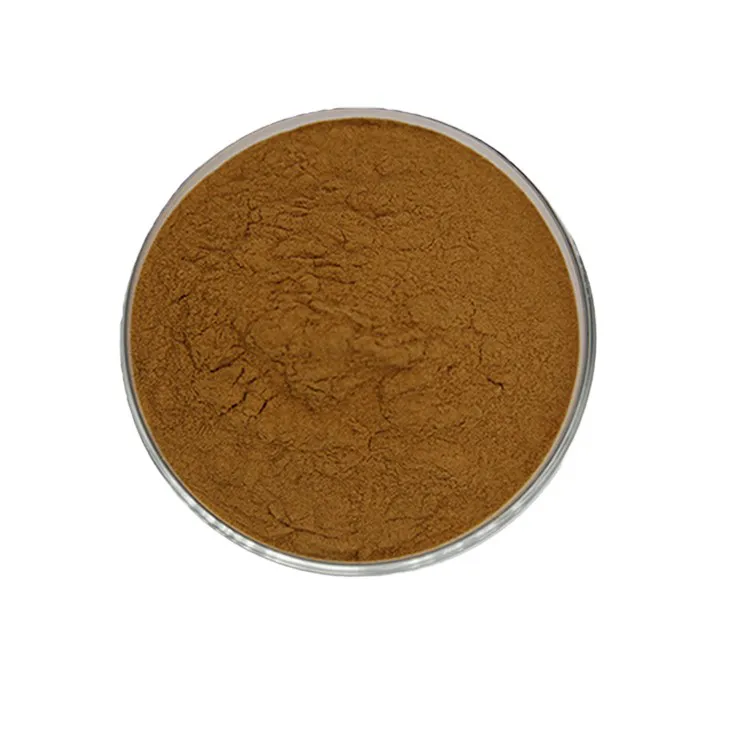- 0086-571-85302990
- sales@greenskybio.com
Optimal Bioavailability of Nettle Root Extract.
2024-12-02

Introduction
Nettle Root Extract has been gaining popularity in recent years as a natural remedy for various health conditions. However, for it to be truly effective, its bioavailability - the degree and rate at which the active compounds are absorbed and utilized by the body - needs to be maximized. Understanding the factors that influence the bioavailability of Nettle Root Extract is crucial for those interested in harnessing its potential benefits.

The Importance of Bioavailability
Bioavailability is a key concept in pharmacology and nutrition. When it comes to nettle root extract, if the active compounds are not well - absorbed by the body, their potential therapeutic effects may be limited. For example, if only a small fraction of the beneficial substances in the extract reach the target tissues or cells, the desired health improvements may not occur. Maximizing bioavailability ensures that a greater proportion of the active ingredients are available to interact with the body's physiological processes.

Factors Affecting Bioavailability of Nettle Root Extract
Dietary Factors
- Fat Content in the Diet: Nettle root extract contains certain compounds that may be fat - soluble. A diet rich in healthy fats, such as those from avocados, nuts, and olive oil, can enhance the absorption of these fat - soluble components. When consumed with a meal containing fats, the body is better able to break down and absorb the extract. For instance, lipids in the digestive tract can form micelles with the fat - soluble compounds in the nettle root extract, facilitating their passage through the intestinal wall and into the bloodstream.
- Fiber Intake: While fiber is generally beneficial for health, high - fiber meals consumed simultaneously with nettle root extract may interfere with its absorption. Fiber can bind to the extract in the digestive tract, reducing the amount available for absorption. However, this does not mean that fiber should be avoided. Instead, it may be advisable to separate the consumption of high - fiber foods and nettle root extract by a few hours to ensure optimal absorption of the extract.
- pH of the Digestive Tract: The pH level in the stomach and intestines can impact the bioavailability of nettle root extract. Some of the active compounds in the extract may be more stable and better absorbed at a certain pH range. For example, if the stomach acid is too high or too low, it could potentially denature or otherwise affect the integrity of the extract's components, reducing their bioavailability. Dietary factors that influence stomach pH, such as the consumption of acidic foods like citrus fruits or alkaline - forming foods like leafy greens, need to be considered in relation to nettle root extract intake.
Processing Techniques
- Extraction Methods: The way nettle root extract is obtained can significantly affect its bioavailability. Traditional extraction methods may not be as efficient as modern ones. For example, solvent - based extraction methods need to be carefully optimized. If the wrong solvent is used, it may not fully extract the active compounds, or it may leave behind impurities that could interfere with absorption. Supercritical fluid extraction, on the other hand, is a more advanced technique that can produce a purer extract with potentially higher bioavailability.
- Particle Size: The size of the particles in the nettle root extract can also play a role. Finer particles generally have a larger surface area, which can increase the rate of dissolution and absorption. When the extract is in a powder form, techniques to reduce particle size, such as micronization, can be employed to enhance bioavailability. However, extremely small particles may also pose challenges in terms of stability and handling.
- Formulation: The formulation of the nettle root extract product is another important aspect. For example, encapsulation can protect the active compounds from degradation in the digestive tract and improve their delivery to the target sites. Enteric - coated capsules can ensure that the extract is not released and degraded in the stomach's acidic environment but rather in the more alkaline intestines, where absorption may be more favorable.
Interactions with Other Substances
- Drug Interactions: Nettle root extract may interact with certain medications. For example, it has been reported to have potential interactions with drugs that affect blood pressure. If a person is taking antihypertensive medications and also consuming nettle root extract, the combined effect could lead to an excessive drop in blood pressure. It is essential to consult a healthcare provider before combining nettle root extract with any medications to avoid potential adverse interactions.
- Herb - Herb Interactions: In the world of natural remedies, nettle root extract may also interact with other herbs. Some herbs may enhance or inhibit the bioavailability of nettle root extract. For instance, if combined with an herb that has a similar chemical composition or mode of action, there could be additive or synergistic effects. Conversely, some herbs may compete for the same absorption pathways or enzymes in the body, reducing the bioavailability of nettle root extract. Careful consideration should be given when using nettle root extract in combination with other herbal products.

Strategies to Maximize Bioavailability
- Optimal Timing of Consumption: Consider the timing of taking nettle root extract in relation to meals. As mentioned earlier, taking it with a meal that contains a moderate amount of healthy fats can enhance absorption. Also, avoid taking it immediately after a high - fiber meal. Instead, wait for a couple of hours to ensure that the fiber does not interfere with the extract's absorption.
- Choosing the Right Product: Look for nettle root extract products that are formulated for optimal bioavailability. This may include those that use advanced extraction methods, have a suitable particle size, and are in a proper formulation such as encapsulated or enteric - coated products. Read product labels carefully to understand the manufacturing process and quality assurance measures.
- Monitoring for Interactions: If you are taking medications or other herbal supplements, be vigilant about potential interactions. Keep track of any changes in your body's response, such as unexpected side effects or changes in the effectiveness of your medications. If any concerns arise, consult a healthcare professional immediately.

Conclusion
Maximizing the bioavailability of nettle root extract is a multi - faceted endeavor. Dietary factors, processing techniques, and interactions with other substances all play important roles. By understanding these factors and implementing appropriate strategies, individuals can better harness the potential health benefits of nettle root extract. However, it is always important to approach the use of natural remedies with caution and consult with healthcare providers when necessary, especially when considering combinations with medications or other supplements.
FAQ:
What factors can affect the bioavailability of nettle root extract?
Several factors can influence the bioavailability of nettle root extract. Diet plays a role, for example, certain foods may enhance or inhibit its absorption. The processing techniques used to prepare the extract are also crucial. Different methods can lead to different levels of bioavailability. Additionally, potential interactions with other substances, whether they are medications or other dietary components, can impact how well the body can utilize the nettle root extract.
How does diet influence the bioavailability of nettle root extract?
Diet can have both positive and negative impacts on the bioavailability of nettle root extract. Some foods may contain compounds that can enhance the absorption of the extract in the body. For instance, foods rich in certain vitamins or minerals might help in better uptake. On the other hand, some dietary components could bind to the extract and prevent its proper absorption, thus reducing its bioavailability.
What are the important processing techniques for maximizing nettle root extract bioavailability?
There are several processing techniques that can be important for maximizing bioavailability. One is proper extraction methods, which should aim to preserve the active compounds in the nettle root. Another aspect is purification, to remove any substances that might interfere with absorption. Additionally, techniques like encapsulation can protect the extract during digestion and enhance its delivery to the target cells, thus potentially increasing its bioavailability.
Can nettle root extract interact with medications and affect bioavailability?
Yes, nettle root extract can interact with medications. These interactions can either increase or decrease the bioavailability of the extract or the medication. For example, if the extract binds to a medication in the digestive tract, it could reduce the amount of the medication available for absorption. Conversely, the medication might also affect how the body absorbs and utilizes the nettle root extract. It is important to consult a healthcare provider if taking medications along with nettle root extract.
How can one ensure optimal bioavailability of nettle root extract?
To ensure optimal bioavailability of nettle root extract, one should consider several aspects. Firstly, be aware of the diet and avoid foods that might interfere with its absorption. Secondly, choose products that are prepared using reliable and effective processing techniques. Thirdly, if taking other medications or supplements, consult a healthcare professional to check for potential interactions that could affect bioavailability.
Related literature
- Bioavailability of Herbal Extracts: A Review"
- "The Influence of Processing on the Bioactivity of Nettle (Urtica dioica) Extracts"
- "Diet - Herb Interactions and Their Impact on Bioavailability"
- ▶ Hesperidin
- ▶ Citrus Bioflavonoids
- ▶ Plant Extract
- ▶ lycopene
- ▶ Diosmin
- ▶ Grape seed extract
- ▶ Sea buckthorn Juice Powder
- ▶ Fruit Juice Powder
- ▶ Hops Extract
- ▶ Artichoke Extract
- ▶ Mushroom extract
- ▶ Astaxanthin
- ▶ Green Tea Extract
- ▶ Curcumin
- ▶ Horse Chestnut Extract
- ▶ Other Product
- ▶ Boswellia Serrata Extract
- ▶ Resveratrol
- ▶ Marigold Extract
- ▶ Grape Leaf Extract
- ▶ New Product
- ▶ Aminolevulinic acid
- ▶ Cranberry Extract
- ▶ Red Yeast Rice
- ▶ Red Wine Extract
-
Sea buckthorn Juice Powder
2024-12-02
-
Centella Asiatica Extract
2024-12-02
-
Oat Straw Extract Powder
2024-12-02
-
Soy Extract
2024-12-02
-
Coconut Water Powder
2024-12-02
-
Nutmeg Extract
2024-12-02
-
Tamarind extract powder
2024-12-02
-
Gynostemma pentaphyllum extract
2024-12-02
-
Artichoke Extract
2024-12-02
-
Red Vine Extract
2024-12-02





















